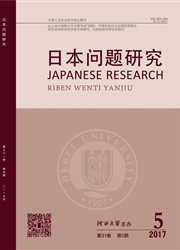

 中文摘要:
中文摘要:
财税统制体制是日本侵华及太平洋战争期间,与对外侵略战争相适应而长期维持的一种特殊财税体制。“九一八事变”前,尽管日本政府存在内阁和军部二元主体结构,但其财税体制主要遵循古典均衡财政主义。自“九一八事变”后的高桥财政开始,内阁在政府中主体性角色遭到削弱,形成了以军部为主的强政府干预结构,进而确立了财税统制体制。上述体制演进对战后日本的财税体制及整体经济发展产生了路径依赖性影响。
 英文摘要:
英文摘要:
The financial tax unification system is a special system adapted to during the invasion to China and Pacific war. Before the Mukden Incident, in subject construction, the financial and tax system of Japan mainly followed t the aggressive war by Japan sp he ite of the existence of dual classical balance financial ideology. After the Mukden Incident, the financial system of Takahasi Administration began to reduce the government roles and the military forces interfered with the financial tax unification system The evolutional route made the reliable effects to the post-war financial and tax system and powerfully. he development of economy.
 同期刊论文项目
同期刊论文项目
 同项目期刊论文
同项目期刊论文
 期刊信息
期刊信息
